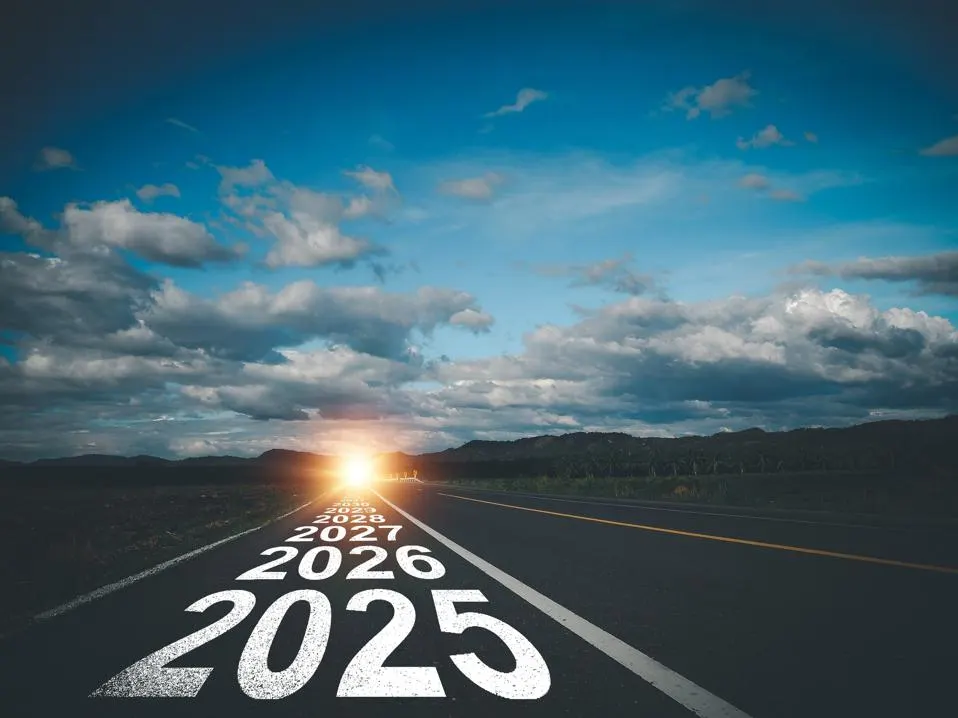The startup ecosystem is one of the most dynamic parts of the global economy, constantly evolving to meet the challenges and opportunities that come with technological advancements, changing consumer behaviour, and economic shifts. As we look toward 2025, the landscape for startups is filled with potential, driven by new innovations, a surge in demand for digital solutions, and a broader focus on sustainability. In this blog, we explore the key global trends impacting startups, spotlight the most promising sectors, and offer a glimpse into what the future holds for entrepreneurs and investors.

Global Trends Reshaping the Startup Landscape
From technological breakthroughs to new investor behaviours, here are the major forces driving the startup world.
- Technological Advancements as a Catalyst for Innovation
Technology remains the primary driver of growth for startups. The rise of artificial intelligence (AI), machine learning, blockchain, and the Internet of Things (IoT) continues to provide startups with the tools to innovate across multiple industries. AI, in particular, is playing a pivotal role, enabling automation, enhancing decision-making, and offering personalized experiences that were previously impossible.
- The Enduring Shift Toward Remote Work
The COVID-19 pandemic accelerated the trend toward remote work, a shift that appears to be permanent for many businesses. This transition has created a surge in demand for digital tools that facilitate remote collaboration, productivity, and communication. Companies like Slack and Zoom have already capitalized on this change, but many startups are emerging with innovative solutions that address niche aspects of the remote work experience.
From project management to virtual team-building platforms, the remote work trend is expected to continue influencing startup growth, with new businesses focusing on enhancing hybrid work environments and building solutions that cater to diverse teams working across time zones.
- Sustainability and ESG as Core Business Principles
The growing focus on environmental, social, and governance (ESG) principles is not just a passing trend—it’s a fundamental shift in how businesses operate. Investors are increasingly prioritizing startups that align with sustainability goals, and consumers are more conscientious than ever about the products and services they support.
The startup ecosystem is seeing a significant rise in green tech companies. From electric vehicles to renewable energy and sustainable agriculture, startups focused on solving environmental challenges are attracting more attention. Well-known companies like Tesla have paved the way, but a new generation of green startups is poised to build on this momentum, addressing climate change, reducing waste, and offering innovative solutions to environmental problems.
- Economic Recovery and the Resilience of Startups
The pandemic has brought a new sense of resilience to startups. Investors are becoming more cautious and looking for startups that are not just growing quickly, but are also building sustainable, profitable businesses. These companies will focus on smart financial strategies and sustainable growth, balancing speed with stability.
- Global Expansion and Cross-Border Opportunities
As digital infrastructure continues to improve, startups are able to scale internationally with ease. Founders no longer need to be based in traditional tech hubs like Silicon Valley to succeed. With the rise of remote work and digital-first business models, entrepreneurs can tap into markets worldwide, building customer bases across borders and accessing talent from different parts of the globe.
Key Sectors Set to Disrupt the Startup Ecosystem
The startup world is vast, but several key sectors are emerging as major drivers of innovation. As we look toward the next few years, these sectors will likely continue to attract attention and investment.
- Artificial Intelligence and Automation
AI is set to dominate a variety of sectors, with startups applying it to everything from healthcare to finance. Companies are using AI to automate repetitive tasks, provide deeper insights through data analytics, and create personalized customer experiences. Whether it’s in robotic process automation (RPA) or predictive analytics, AI is enabling businesses to scale faster and more efficiently.
Startups like UiPath, which focuses on automating mundane tasks, and Cerebras, which is developing AI-focused hardware, are prime examples of companies harnessing the power of AI to push industries forward. In 2025, AI will be central to nearly every startup’s value proposition, making it a key sector to watch.
- Fintech and Blockchain Revolution
Fintech continues to be one of the most rapidly evolving sectors, with innovations that are transforming the financial landscape. From digital payment solutions to wealth management platforms, fintech startups are providing more efficient, secure, and accessible services than traditional financial institutions.
Blockchain technology is also driving disruption, particularly in areas like cryptocurrency, smart contracts, and decentralized finance (DeFi). Startups such as Plaid and Stripe are reimagining the way we transact, while Chainlink and other blockchain-focused startups are enabling more transparent, secure financial operations.
- Healthtech and Biotech Advancements
Startups are innovating in telemedicine, AI-powered diagnostics, and personalized healthcare, offering solutions that make healthcare more accessible, efficient, and tailored to individual needs. In the biotech space, startups are driving advancements in genomics, personalized treatments, and the development of vaccines and therapies. Companies like Tempus, which uses AI to analyse medical data for better treatment options, and Honor, a tech company improving eldercare, highlight the potential of this sector to transform healthcare delivery.
- Green Tech and Clean Energy
From renewable energy to electric vehicles (EVs), the demand for sustainable solutions continues to rise. Startups in this space are working to reduce emissions, increase energy efficiency, and create innovative ways to combat climate change.
Companies like Tesla have set a high bar, but many newer startups are emerging to address environmental challenges with technologies that enable more sustainable living. As governments and consumers continue to prioritize sustainability, this sector is expected to be a major focus for investors.
- Edtech and the Future of Learning
The edtech industry has seen significant transformation, especially in the wake of the pandemic. With a growing emphasis on remote learning, startups are developing solutions to make education more accessible, personalized, and interactive. From virtual classrooms to AI-powered tutoring systems, edtech is making education more flexible and scalable.
Startups like Duolingo and Coursera are already revolutionizing how people learn, and the demand for digital learning tools will continue to rise in the coming years. With a focus on personalized learning and accessible education, the edtech sector holds great promise for future growth.

Looking Ahead: What the Future Holds for Startups
The startup ecosystem in 2025 and beyond will be shaped by several key developments. The integration of AI and automation into everyday business operations will continue to transform industries, while sustainability-focused startups will thrive in a world increasingly concerned with environmental issues. The future of startups is also inherently global, with more opportunities for cross-border expansion and international collaboration.
However, as the landscape evolves, startups will also need to prioritize resilience, adaptability, and sustainable growth. Investors will continue to favour businesses that can demonstrate long-term value and the ability to thrive in an ever-changing world.

 March 31, 2025
March 31, 2025